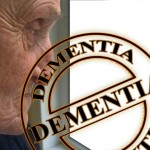 IU study finds caffeine boosts enzyme that could protect against dementia
IU study finds caffeine boosts enzyme that could protect against dementia
Indiana University Bloomington Health Sciences News
A study by Indiana University researchers has identified 24 compounds – including caffeine – with the potential to boost an enzyme in the brain shown to protect against dementia.
The protective effect of the enzyme, called NMNAT2, was discovered last year through research conducted at IU Bloomington.
The new study appeared in the journal Scientific Reports.… [Continue Reading]



 Older people who are living independently but have signs of cerebral damage may lower their risk of having progressive cognitive impairment or dementia if they remain physically active, researchers found.
Older people who are living independently but have signs of cerebral damage may lower their risk of having progressive cognitive impairment or dementia if they remain physically active, researchers found.